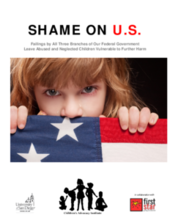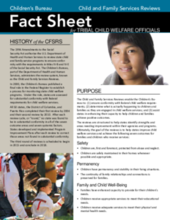This page contains documents and other resources related to children's care in the Americas. Browse resources by region, country, or category.
Displaying 2821 - 2830 of 3180
This study, produced by the Children’s Advocacy Institute at the San Diego School of Law, examines the activities of the federal government of the United States in regards to enacting and enforcing child welfare laws and ensuring that individual states are complying with minimum federal standards for child protection.
The First Peoples Child & Family Review proudly presents this Special Edition on Custom Adoptions in partnership with the Siem Smun’eem Indigenous Child Wellbeing Research Network at the University of Victoria. This edition contains research articles, agency experiences, cultural perspectives and personal stories that highlight custom adoption from a historical and contemporary perspective.
This paper forms Part 2 of a two-part discussion paper on Indigenous custom adoption.
This paper forms Part 1 of a two-part discussion paper on Indigenous custom adoption.
This article is a review of lessons learned from the Yellowhead Tribal Services Agency (YTSA) pilot program.
This paper calls for creative pathways of engagement that delineate places of belonging for and with Indigenous youth in care.
This article describes a group of Elders in the Lax kw’alaams community of British Columbia who provide support and mentorship to the Lax kw’alaams children in care.
This factsheet looks at whether States in the US are following best practices in regards to the Indian Child Welfare Act, such as notification of Tribes and placement preferences. Findings from the Reviews are presented.
This article provides an overview of inter-country adoption of children from the United States to other countries.
This paper reviews the literature on foster care and explains the issues that foster children in Canada experience.



